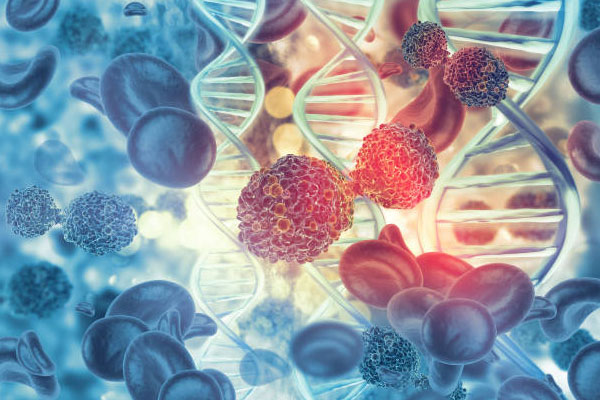What Are the Risk Factors for Developing Cancer?
Explore the intricate world of cancer risk factors From age and genetics to lifestyle choices and environmental exposures, discover what makes you susceptible to cancer Learn how early detection and protective measures can safeguard your health
Cancer is a term that evokes fear and concern in many. But what exactly is cancer? Simply put, cancer is a group of diseases characterized by the uncontrolled division and growth of abnormal cells in the body. These cells can invade surrounding tissues and even spread to other parts of the body through the bloodstream and lymphatic systems. While the term "cancer" is broad, it encompasses numerous types, each with its own unique characteristics and risk factors. This article explores the various facets of cancer and, more importantly, delves into the risk factors that play a pivotal role in its development. We'll examine common and less common risk factors, the influence of genetics and age, the impact of lifestyle choices, and the importance of early detection and prevention. Join us on this journey to better understand what cancer is and how we can mitigate the risks associated with it.

Understanding the Risk Factors for Developing Cancer
What Are Cancer Risk Factors?
In this section, we will delve into the various factors that can increase the risk of developing cancer. Understanding these risk factors is essential for prevention and early detection.
1. Age and Cancer Risk
Age is a significant factor in cancer risk. We'll explore how the risk of cancer can increase with age and what age-related factors come into play.
2. Genetic Factors and Cancer
Your genetics can play a crucial role in cancer risk. We'll discuss the hereditary aspects of cancer and genetic testing.
3. Lifestyle Choices and Cancer
Your daily choices, such as diet and exercise, can impact your cancer risk. We'll examine how lifestyle choices can influence cancer development.
4. Environmental Factors and Cancer
Environmental factors, including exposure to pollutants and toxins, can contribute to cancer risk. We'll discuss the environmental elements that are linked to cancer.
Common Cancer Risk Factors
Common cancer risk factors are those widely recognized as playing a significant role in cancer development. Understanding these factors is crucial for cancer prevention and early intervention.
1. Age and Cancer Risk
Age is a critical factor in cancer risk. We'll delve into how the risk of cancer can increase with age and explore age-related risk factors.
2. Genetic Factors and Cancer
Your genetic makeup can influence your cancer risk. We'll discuss the hereditary aspects of cancer and the importance of genetic testing.
3. Lifestyle Choices and Cancer
Your daily choices, including diet, physical activity, and habits, can significantly impact your cancer risk. We'll examine how lifestyle choices can contribute to or mitigate the risk of cancer.
4. Environmental Factors and Cancer
Environmental factors, such as exposure to pollutants, toxins, and radiation, can be linked to cancer risk. We'll discuss these environmental elements and their association with cancer development.
Less Common Cancer Risk Factors
While common cancer risk factors are widely known, there are less common factors that can also contribute to cancer development. Understanding these less common risk factors is essential for a comprehensive awareness of cancer risk.
1. Occupational Hazards
Some occupations expose individuals to unique risks that can increase their chances of developing cancer. We'll explore how certain jobs and workplace hazards can be linked to cancer.
2. Infectious Agents and Cancer
Infections with certain viruses and bacteria can increase the risk of cancer. We'll discuss the connection between infectious agents and specific types of cancer.
3. Radiation and Cancer Risk
Radiation exposure, whether from medical procedures or environmental sources, can pose a risk for cancer development. We'll examine how different types of radiation can influence cancer risk.
Protecting Against Cancer Risk
Protecting yourself against cancer risk is crucial for maintaining good health. This section explores various strategies and measures that can help reduce your risk of developing cancer.
1. Early Detection and Screening
Early detection is key to preventing cancer or catching it at a treatable stage. We'll discuss the importance of regular screenings, self-examinations, and early detection methods for different types of cancer.
2. Healthy Lifestyle Choices
Your daily lifestyle choices play a significant role in cancer prevention. We'll explore how adopting a healthy diet, maintaining a proper weight, exercising, and avoiding harmful habits can reduce your cancer risk.
3. Genetic Counseling and Testing
If you have a family history of cancer or suspect a genetic predisposition, genetic counseling and testing can provide valuable insights. We'll discuss the role of genetic counseling and testing in assessing and managing your cancer risk.
Frequently Asked Questions About Cancer Risk Factors
Q1: What are the most common risk factors for developing cancer?
A1:Learn about the most prevalent risk factors that can increase your chances of developing cancer.
Q2: How does age influence cancer risk?
A2:Discover the relationship between age and the risk of developing cancer and the age-related factors involved.
Q3: Can cancer be hereditary? How do genetics affect cancer risk?
A3:Explore the hereditary aspects of cancer and how genetics can impact an individual's risk of developing cancer.
Q4: What lifestyle choices increase the risk of cancer?
A4:Understand how your daily lifestyle choices, such as diet and exercise, can influence your cancer risk.
Q5: Are there specific environmental factors that contribute to cancer risk?
A5:Learn about environmental factors, including exposure to pollutants and toxins, and their association with an increased risk of cancer.
Q6: What are some less common but significant cancer risk factors?
A6:Explore less common risk factors that are not widely known but can still contribute to cancer development.
Q7: How do occupational hazards impact cancer risk?
A7:Understand how certain occupations and workplace hazards can pose risks for cancer development.
Q8: Can infections lead to the development of cancer?
A8:Discover the connection between infections caused by viruses and bacteria and the risk of developing specific types of cancer.
Q9: What is the relationship between radiation and cancer risk?
A9:Examine the link between radiation exposure, whether from medical procedures or environmental sources, and the risk of cancer development.
Q10: How can individuals protect themselves against cancer risk?
A10:Find out about various strategies and measures that individuals can adopt to reduce their risk of developing cancer.
